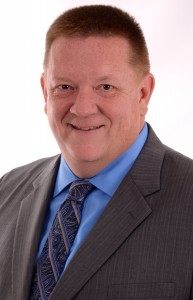Download and read Ken’s school communication articles:
Crisis Communications in a Digital World
The Post-Crisis Crisis: Managing parent and media communications
Communicating Safety to parents and the media
Our study on violent threats to schools during delivered by social media and other electronic forms
We can evaluate and teach school safety communication strategies, crisis communications, social media and on-camera performance to help you reach parents, reporters and community decision makers effectively.
Communications and social media evaluation in school security and emergency preparedness assessments
We will work with your administrators and communications staff to analyze your web site, review communications policies and protocols, identify ways to coordinate messaging with community partner agencies, and share the latest strategies from traditional to digital media. Our expertise comes from extensive work with news reporting and newsroom management at media companies across the nation. Our work with preK-12 public and private schools connects us to your school safety communications challenges. We can give you skills to take control of this critical aspect of managing school safety and running a school system.
Crisis Communications: You do have a plan, don’t you?
During a real emergency you don’t have time to look up phone numbers or worry about what to say at a news conference. From violence to severe weather to bus accidents, some of the topics to consider include:
- Critical first steps – Who does what during the first hour
- Who should be on your priority contact list
- Best ways to notify your staff, your parents, your community, the media
- Preparing for your first news conference
- Six critical comments to avoid if violence strikes your school
- What the media needs from you
- What parents expect to hear
- Holding statements
- Dark website
- Social media control center
- Rumor control
- Monitoring the media
- Correcting misinformation
- Hardware and software you will need if you are evacuated from your building
- Best ways to keep parents informed during an ongoing situation
- Managing texting and social media when student safety is an issue
- Handling communications in the weeks after a high-profile school crisis
The pipeline to parents and the media
You have many positive, exciting things going on in your school district that contribute to school safety. Are you missing ways to get the message to your parents and media? You district can have a game plan for working with traditional and non-traditional media to tell your stories of school safety, and building strong school community support:
- Media plan: why you need it and how to create it
- Telling your story and selling your story
- Think like a reporter
- How to map out the local media landscape and target your message for broadcast, newspapers, online and social media
- Secrets to getting your good news story out
- How the newsroom works
- What reporters want
- Your website: What should and should not be on it
- Easy ways to update your site daily
- Generating buzz without traditional media
- Developing messages that create credibility and trust
- Hot topics in school safety likely to thrust your district into the spotlight
- Strategies when you’re the target of an investigative report
- Managing aggressive reporters
- Public records request: Is trouble on the way?
- How to anticipate and prepare for the big investigation
Social Media: Keep your friends close and your frenemies closer
- Facebook, Twitter, YouTube, Snapchat and other social media platforms can be your best tool for building support and positive buzz in the community. They can also turn your school into a bad reality show that you cannot control. Ignore these strategies at your own risk:
- Your identity online: build it and monitor it.
- Manage your online reputation
- Build followers and engage with the community
- Sidestep traditional media and get your message out thru social media.
- Truth, transparency and trust: the currency of social media
- Creating your own news channel
- The 24 second news cycle
- Rumor control
- Monitoring gangs, fights, suicide talk
- What to do when a hallway fight lands on YouTube and Instagram
- Threats by proxy server
- Managing negative comments and threats on social media
- How social media can keep reporters off your back
- Why listening is often more important than talking
Effectively managing difficult community meetings
- Do your public meetings get hijacked by individuals on a mission? Learn to manage those moments without damaging your image:
- Delivering key messages
- Handling wringers
- Responding to politically charged questions
- Agenda driven traps
- Moving the meeting forward
Media Training: Do you duck for cover when you see reporters coming?
Are you prepared to navigate the sea of cameras and field reporter questions – from the news conference to the ambush interview? We know how to get ahead of the news curve when news breaks at your school. We can give you a game plan for working with traditional and non-traditional media:
- On air training workshop
- Strategies for news conferences and live interviews
- How to look your best on camera
- Learning the language of sound bites and quotes with short and meaningful messages
- Rules of the road for on the record and off the record comments, and other conventions of traditional journalism
- Keeping control of your message and staying on point
- Pitfalls: What you should never do in an interview
- Handling difficult questions and ambush interviews
We teach communication strategies, crisis communications, social media and on-camera performance to help you reach parents, reporters and community decision makers effectively.
Expert Consultants:
 Kenneth S. Trump brings a powerful toolbox of communication skills to help educators effectively reach parents and community stakeholders on safety issues. He understands how things work in the classroom, the newsroom, and the political war room, because he has worked in all three.
Kenneth S. Trump brings a powerful toolbox of communication skills to help educators effectively reach parents and community stakeholders on safety issues. He understands how things work in the classroom, the newsroom, and the political war room, because he has worked in all three.
· He started as an officer, investigator and Youth Gang Unit Supervisor for the Cleveland Public Schools, and went on to become a School Security Director for a large suburban system. As President of National School Safety and Security Services, he continues to work closely with reporters on stories about securing schools, safety training and violence prevention.
· Ken worked at the ABC television station in Cleveland, OH (Market #18) as a freelance producer, content consultant and online reporter, covering stories about government waste and official corruption.
· He also knows political messaging and media relations, after working as a campaign manager and advisor.
This rare mix of experience gives Ken a real understanding of what parents, taxpayers and voters want to hear about school safety, and what resonates with communities. He advises school leaders on how to avoid messaging pitfalls that can backfire. And he helps school leaders navigate highly emotional and politically charged situations that affect the safety of children.
Reporters call Ken daily. He’s one of the most widely quoted school safety experts. He has appeared on every TV network and cable news channel, and in hundreds of newspapers and radio stations nationwide.
Ken has authored three books and more than 80 articles on school security, emergency preparedness and crisis communications. He speaks regularly at the annual conferences of the National School Boards Association and the National School Public Relations Association (NSPRA). For more information check out Ken’s Bio.
Our communications consultant team has decades of experience as veteran education and investigative reporters, managing editors, anchors, news directors, and social media strategists. They know what questions will be asked of school and safety officials, how decisions are made on what is and is not covered in the news, techniques for best handling challenging media inquiries and interviews, and how to communicate your school’s message proactively within and outside of the traditional media channels.
 Dick Russ has been serving the people of Northeast Ohio for some 40 years, both as a professional journalist and as a leader in the community’s civic life. Dick has held a variety of leadership positions in broadcast journalism including most recently serving as News Anchor and Managing Editor at Cleveland’s NBC affiliate, WKYC-TV, Channel 3. Before coming to WKYC in 1999, Dick spent 20 years at WJW-TV in Cleveland, where he anchored and reported the news locally, nationally, and internationally. In the 1970’s he served as a broadcast journalist at a number of TV and radio stations in Northeast Ohio, including WAKR Channel 23 in Akron.
Dick Russ has been serving the people of Northeast Ohio for some 40 years, both as a professional journalist and as a leader in the community’s civic life. Dick has held a variety of leadership positions in broadcast journalism including most recently serving as News Anchor and Managing Editor at Cleveland’s NBC affiliate, WKYC-TV, Channel 3. Before coming to WKYC in 1999, Dick spent 20 years at WJW-TV in Cleveland, where he anchored and reported the news locally, nationally, and internationally. In the 1970’s he served as a broadcast journalist at a number of TV and radio stations in Northeast Ohio, including WAKR Channel 23 in Akron.
Dick’s professional media honors include membership in the Ohio Broadcasters Hall of Fame, the Press Club Hall of Fame, and the prestigious Silver Circle Award from the National Academy of Television Arts and Sciences (NATAS), recognizing more than a quarter century of exemplary service to the television industry. Dick is a ten time winner of the regional Emmy Award, and a two time honoree by the Ohio Society of Professional Journalists as the state’s outstanding television documentarian.
His efforts on behalf of the Northeast Ohio community have earned broad recognition, including the U.S. Attorney General’s Service Award, the Arc of Greater Cleveland’s Legacy Award, the Asian Pacific American Federation Leadership Award, and the Rotary Club’s International Service Award.
During his journalism career, Dick managed and provided extensive reporting on school security and emergency preparedness incidents including two high-profile school shootings, one in Chardon, Ohio, and the other at Cleveland’s Success Tech School, which received extensive national attention. Dick has worked closely with school boards, superintendents and educators on education news stories for four decades. In his work with community agencies, Dick has developed specialized knowledge, experience and commitment to working with individuals with disabilities and related special needs.
Today, Dick advises school leaders on crisis communications planning, social media strategies and related communications issues to help them stay ahead in communicating their messages to parents, the community, school staff and students, and the media. As a consultant to National School Safety and Security Services, Dick evaluates school web sites, crisis communications plans, traditional media strategy, social media tactics and strategy, and related messaging. Dick knows the secrets for managing the challenging stories and for getting positive coverage of a school’s “good news” stories.
For additional information on our services, contact Ken Trump.

